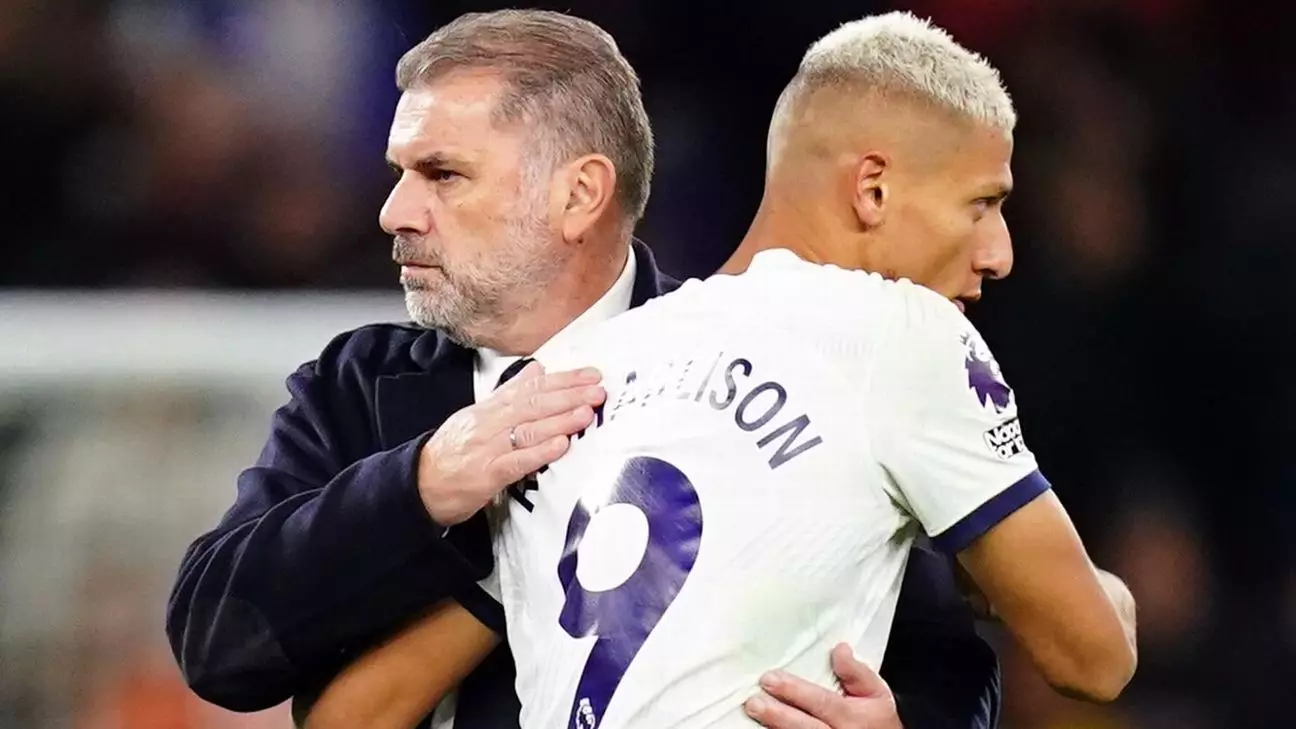Tottenham Hotspur finds itself grappling with significant challenges in its forward line, primarily owing to the persistent injury woes of Brazilian striker Richarlison. According to recent statements from manager Ange Postecoglou, the club’s primary striker has been sidelined with a “significant hamstring injury,” compounding an already frustrating pattern of physical setbacks. Richarlison, 27, has not only been missing due to this latest hamstring issue but has also dealt with calf and knee injuries that have hampered his consistency on the pitch. The frequency and severity of these injuries cast doubt on his long-term viability as a reliable scoring option for Spurs.
Richarlison’s absence has forced the club to explore alternative strategies for their attack, leading to the use of Son Heung-Min in a central forward role during the recent match against Fulham. This shift in positioning highlights the urgent need for effective strikers, particularly as backup options face their own challenges. Dominic Solanke, who was expected to contribute significantly, was unexpectedly sidelined due to illness. Additionally, summer acquisition Wilson Odobert’s recent surgery for a hamstring issue has further eroded the available options for Postecoglou.
The situation becomes even more complicated with the club’s promising young talent, Mikey Moore, also facing a period away from the pitch due to illness. With such a depleted roster, Postecoglou’s frustration becomes palpable, and the manager’s openness about exploring new options for bolstering the forward line illustrates the seriousness of the situation.
Postecoglou has openly acknowledged the need for reinforcements in the team’s forward positions, especially considering Richarlison’s historical issues with fitness. His recognition of Richarlison’s potential when fit underscores the striker’s previous contributions, but the club’s management must weigh potential against availability. The manager’s comments suggest a proactive approach to squad building as he seeks to maintain not only depth but also the overall quality necessary for competing at a high level.
Additionally, the mention of Solanke provides a glimmer of hope, but that optimism comes with the caveat of potential burnout if overworked. As the coaching staff carefully navigates the lineup, ensuring that players receive adequate recovery time while maximizing performance becomes paramount.
The Road Ahead
As the January transfer window approaches, Spurs must prioritize identifying and securing forward talent that can alleviate the pressure on existing players and bring additional firepower to the squad. This need is not just a reaction to current injuries but also a crucial component of long-term strategy. With each match, the urgency grows for Tottenham to find solutions that will stabilize their attacking unit and foster a competitive edge in the league.
While Richarlison’s talent is undeniable, the nagging concern over his fitness poses a significant predicament for the club. Coupled with illness-stricken teammates and the pressure of upcoming fixtures, the imperative to bolster the frontline is clear. Addressing these issues promptly can help Tottenham navigate through a turbulent season, ensuring they remain in contention for their objectives.

